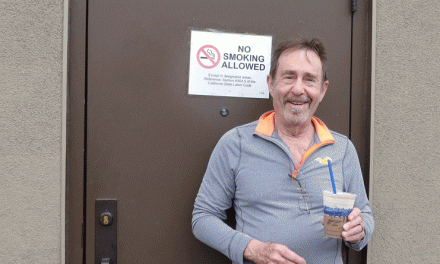Realities the Movement Must Recognize
By Jeffrey Hergenrather, MD, to Alice O’Leary:
 There are some realities the cannabis legalization movement must recognize. One is simply that the prohibitionists in drug-war industries (big pharma, incarceration, law enforcement, tobacco, alcohol, gaming, and our bought-off legislators, etc.) will fight to the end. Too much is at stake for them in their bottom line to assent, to say that “you’re right, cannabis is medicine and it’s time to legalize it.” Instead they will continue to fight with the usual misinformation, high-emotion stories of addiction and aberrant brain development, and calls for more research into this “dangerous drug.” Simply stated by Justice Francis L. Young, Administrative Law Judge of the DEA in 1988, “ Marijuana, in its natural form, is one of the safest therapeutically active substances known to man. By any measure of rational analysis marijuana can be safely used within a supervised routine of medical care.”
There are some realities the cannabis legalization movement must recognize. One is simply that the prohibitionists in drug-war industries (big pharma, incarceration, law enforcement, tobacco, alcohol, gaming, and our bought-off legislators, etc.) will fight to the end. Too much is at stake for them in their bottom line to assent, to say that “you’re right, cannabis is medicine and it’s time to legalize it.” Instead they will continue to fight with the usual misinformation, high-emotion stories of addiction and aberrant brain development, and calls for more research into this “dangerous drug.” Simply stated by Justice Francis L. Young, Administrative Law Judge of the DEA in 1988, “ Marijuana, in its natural form, is one of the safest therapeutically active substances known to man. By any measure of rational analysis marijuana can be safely used within a supervised routine of medical care.”
It will take someone like Senator Bernie Sanders, not Congress to change the law of the land. Though Congress is charged with the responsibility to change the CSA, votes are bought and sold to the highest bidder. If not an executive order it would take nothing less than a constitutional amendment to remove plants for Schedule 1 of the CSA.
In the meantime physicians are more restricted than anyone else on earth by the vague Ninth Circuit decision to inform physicians that they should refrain from aiding and abetting patients in their effort to procure cannabis. Though I appreciate the need to keep product out of the doctor’s offices, the decision creates an enormous disservice to patients to send them out the office with nothing more than an approval and little substantial connection to finding the best product to meet their needs. This is especially difficult when treating children with cancer, autism, epilepsy, inflammatory bowel disease and many other conditions. Even in California there are very few dispensaries that are willing to accept minors as patients.
Until cannabis is removed from Schedule 1 of the CSA and the Ninth Circuit’s decision to proscribe physicians from aiding and abetting is no longer relevant, the nurses will be the health professionals to work with patients at the source of cannabis and cannabinoid medicines —the dispensary. While physicians should be on site at the dispensary to help patients find the best medicine to meet their needs, they must work off-site, behind the scenes.
The physicians in the Society of Cannabis Clinicians are among of the most knowledgeable professionals in the field of cannabinoid medicine. They are available as specialists in an evolving field of medicine that is unique as it crosses traditional lines of specialization. The cannabis specialist must be knowledgeable across many fields of medicine including oncology, rheumatology, pediatrics, dermatology, rehabilitation medicine, and psychiatry to name a few. Their evaluation, examination, and advise can be found nowhere else. Though, often, their recommendations are far from the reality of what products are actually available as they distance themselves from dispensaries. Until the law changes to allow the physician to be on site at a dispensary, we should look to the nurses, especially those of the ACNA, the American Cannabis Nurses Association to meet this role in the rapidly changing field of cannabinoid medicine.





